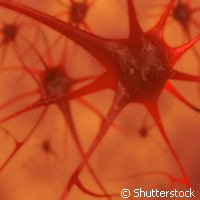Researchers reveal how sick proteins move between cells in Parkinson's sufferers
An EU-funded study has revealed that the sick proteins that are a key element of Parkinson's disease move between cells slowly, eventually triggering the destruction of the new host cell. They believe the discovery could lead to new therapeutic strategies for neurodegenerative diseases. Presented in the Journal of Clinical Investigation, the research was funded in part by the PROSPECTS ('Proteomics specification in time and space') project, which has received almost EUR 12 million under the EU's Seventh Framework Programme (FP7). The mis-folding of abnormal proteins in brain cells is a key element in the development of Parkinson's disease. The study showed that the damaged alpha-synuclein proteins can spread in a 'prion-like' manner, an infection model previously described for diseases such as Bovine spongiform encephalopathy (BSE), otherwise known as mad cow disease. 'This is a significant step forward in our understanding of the potential role of cell-to-cell transfer of alpha-synuclein in Parkinson's disease pathogenesis and we are very excited about the findings,' says Professor Patrik Brundin from Lund University in Sweden, who led a team of researchers from Denmark, France and Portugal. Previous studies suggesting that aggregated alpha-synuclein protein gradually appears in healthy young neurons transplanted to the brains of Parkinson's patients initially gave rise to the group's hypothesis of cell-to-cell protein transfer. The theory has now been tested in several cell culture experiments. The researchers explain in their paper how they used 'several cell culture and in vivo models to demonstrate that alpha-synuclein can propagate between cells and interact with the cytoplasmic pool of alpha-synuclein in the recipient cell and seed aggregation'. They write that they had provided 'what we believe is the first evidence for a seeding activity of propagated alpha-synuclein subsequent to its cell-to-cell transfer in cell coculture system'. They believe that 'such a seeding or nucleation process could constitute a crucial step in putative template-based spreading of alpha-synuclein pathology'. According to them, 'Spreading of misfolded alpha-synuclein, followed by permissive templating of natively unfolded alpha-synucleinin the recipient cells, can account for alpha-synucleinpathology progressively affecting greater parts of the nervous system of Parkinson's disease patients.' Dr Christian Hansen from the University of Lund's Neuronal Survival Unit at the Wallenberg Neuroscience Centre, explains the importance of the new findings. 'We have now shown that alpha-synuclein not only can transfer from one cell to another, but also that the transferred protein can seed aggregation of alpha-synuclein in recipient cells as well,' he says, adding that 'this could be an important mechanism for the spread of the pathology'. The theory of cell-to-cell transfer was strengthened by transplant trials in mice performed by Dr Hansen's colleague, Dr Elodie Angot, lead investigator for animal modelling in the study. Dr Angot says, 'Six months after Parkinson's disease model mice were transplanted with healthy dopamine neurons, we found that the new brain cells contained human alpha-synuclein, indicating cell-to-cell transfer from the host brain to the transplants'. These findings add further support to the research group's hypothesis that protein aggregates crossing cellular membranes contribute to the pathogenesis of neurodegenerative diseases. In conclusion, Professor Brundin says: 'We are one step closer to understanding how the neuropathology spreads throughout the nervous system in Parkinson's disease, which opens up avenues for new treatments. Hopefully, in the future we will be able to inhibit this spread and slow down the relentless disease progression and worsening of symptoms in patients.'For more information, please visit: PROSPECTS:http://www.prospects-fp7.eu/Lund University:http://www.lunduniversity.lu.se/Journal of Clinical Investigation:http://www.jci.org/
Countries
Denmark, France, Portugal, Sweden



